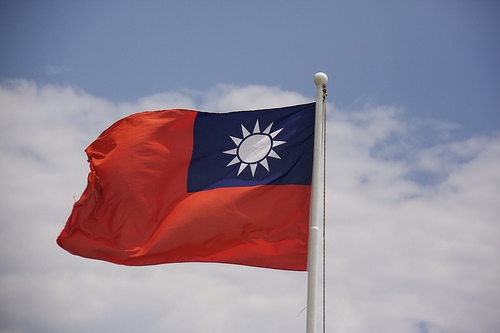
Taiwan's RMB deposits growth ballooned to CNY 233b in May
But it's the slowest rate compared to April.
According to DBS, the outstanding stock of RMB deposits at the domestic banking units expanded to CNY 233bn in the end of May.
Compared to April, the month-on-month growth registered only 2.4%, the slowest rate since the renminbi retail business was launched in Taiwan in Feb13.
Here's more from DBS:
The depreciation of RMB and the narrowing of RMB-TWD rate differentials should have reduced the attraction of renminbi assets to Taiwanese investors.
As a result of the selective RRR cuts by the PBOC and the easing of liquidity pressures amongst Chinese banks, the money market rates in China have retreated compared to the peak in end-2013. The Bank of China’s Taipei branch has also cut the interest rates paid on the RMB re-deposits. In the meantime, in the FX market, the RMB depreciated about 3% against the TWD cumulatively since February.
Going forward, the RMB is expected to return to the appreciation path in 2H14 as China’s GDP growth bottoms out and the external trade outlook improves. Meanwhile, we don’t expect broad-based monetary easing by the PBOC. From the medium-to-long term perspective, renminbi should remain as a highreturn asset for Taiwanese investors, in line with the fact that China’s economic growth relatively outperforms.
The slowdown of RMB deposit growth after a year of very strong expansion is also normal. Over the past 16 months, the size of RMB deposits increased
from virtually nil to the current CNY 233bn. In Hong Kong, the similar process took about six years.Today, RMB deposits account for circa 4% of the total deposits in Taiwan’s banking system, still lower than the 13% in HK. But HK is an international financial/business hub, Taiwan is not. As a percentage of the overall foreign currency deposits, the share of RMB deposits has reached 30% in Taiwan, surpassing HK’s 25%.
The supply of RMB liquidity is not a big issue for Taiwan. In order to develop the offshore RMB market, what Taiwan needs to focus on is encouraging the circulation of RMB liquidity and creating more channels for repatriation.
Unfortunately, the ratification of the cross-strait services trade agreement in Taiwan’s parliament has been delayed due to political reasons. The process of cross-strait economic/financial cooperation has also slowed on all fronts. Given the ongoing political stalemate between the ruling and opposition parties in the parliament, no breakthroughs appear to be on the horizon in the short term.
























 Advertise
Advertise






